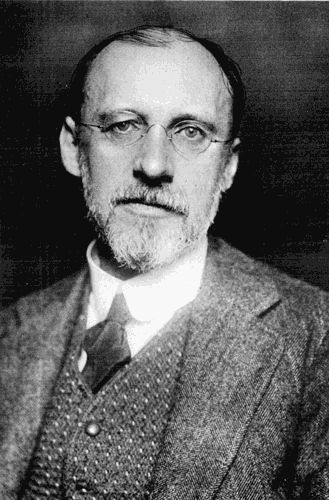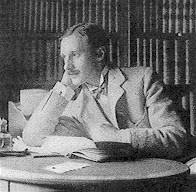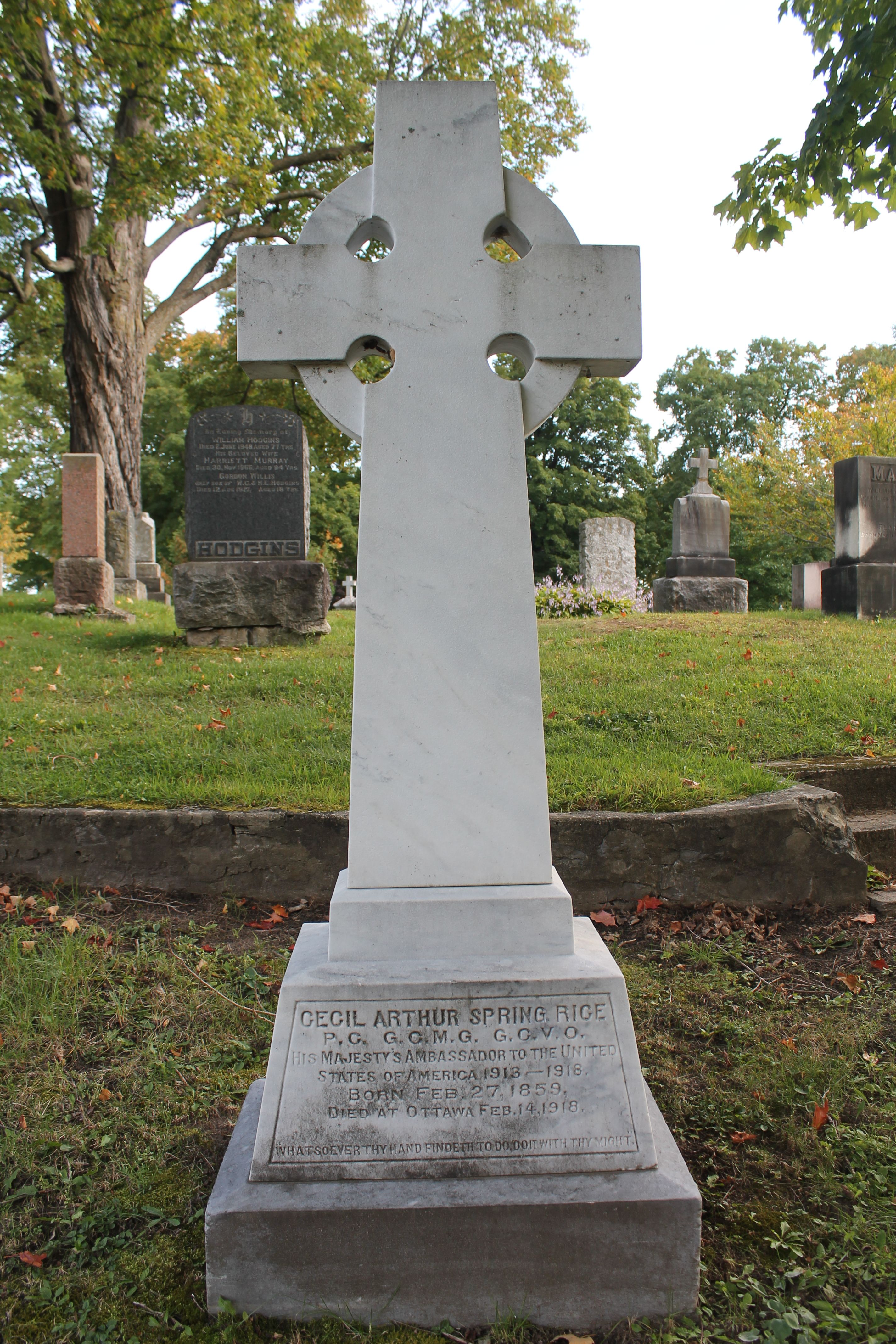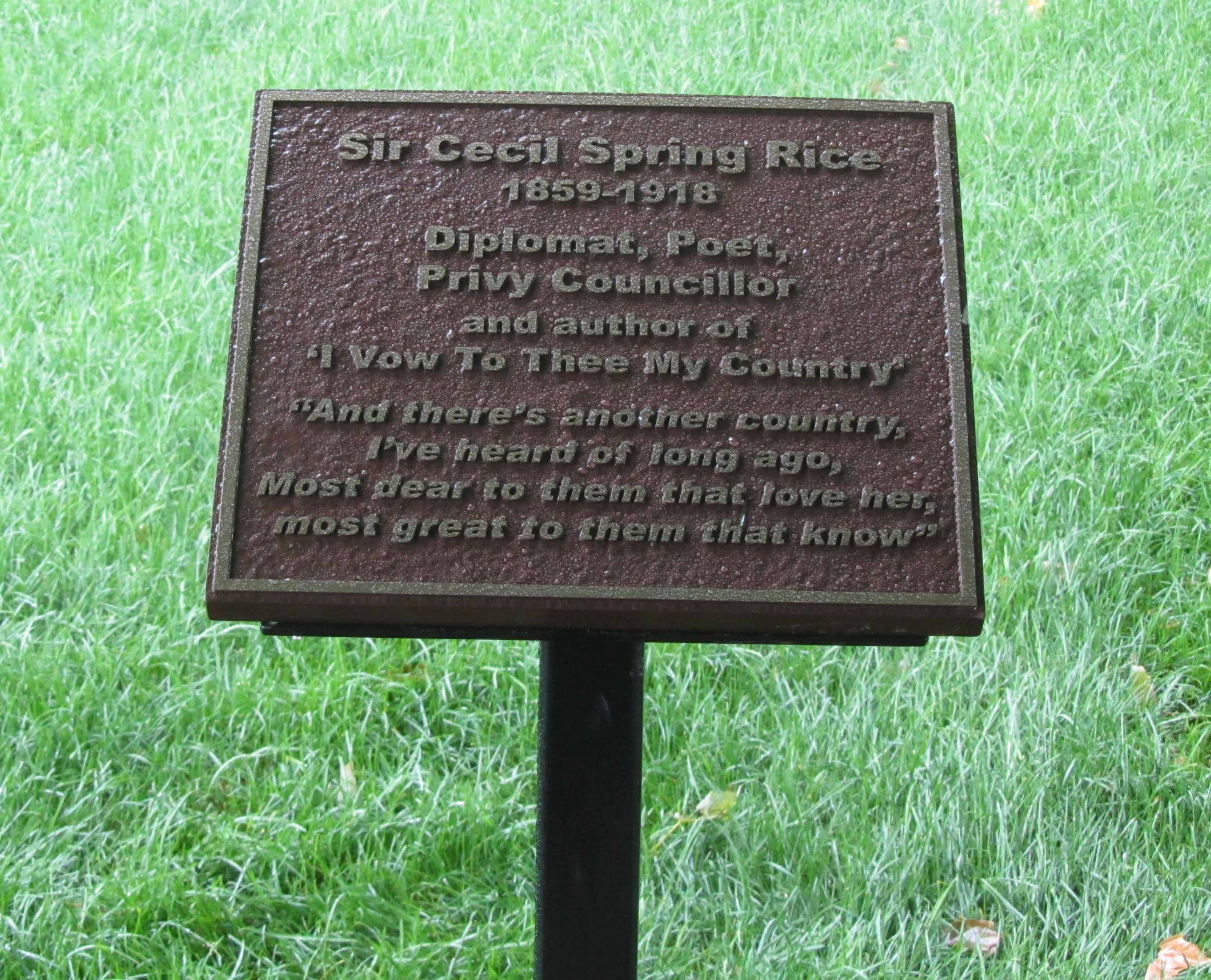
Diplomat and Poet - Sir Cecil Arthur Spring-Rice
Sir Cecil Arthur Spring-Rice
Section 22, Lot 15 SW
Spring Rice was born on February 27, 1859, into an aristocratic and influential Anglo-Irish family. He was the son of a diplomat, The Hon. Charles William Thomas Spring Rice, who was the second son of the prominent Whig politician and former cabinet minister Lord Monteagle of Brandon. Spring Rice's maternal grandfather was the politician William Marshall, and he was a cousin of Frederick Spring. He was the great-grandson of The 1st Earl of Limerick, John Marshall, and George Hibbert. Spring Rice's father died when he was eleven, and he was raised at his mother's family's house at Watermillock on the shore of Ullswater. During his childhood, he was often ill, and he later suffered from Graves' disease, despite maintaining an active lifestyle. He was educated at Eton and Balliol College, Oxford, and in 1882 entered the Foreign Office as Earl Granville’s private secretary.

Joining the foreign Office in 1882, Spring-Rice became Assistant Private Secretary to the Foreign Secretary, but lost that post under the Conservatives because of his sympathies for Irish Home Rule. He then joined the diplomatic service, and his first posting was to Washington DC in 1887. Later postings took him to Japan, back to and to Berlin, where he met his future wife, Florence Caroline Lascelles, a cousin of the Duke of Devonshire. He was also posted to Constantinople, Tehran, Cairo and St Petersburg, before becoming Ambassador to Sweden.
He was appointed ambassador to the US in 1912, two years before World War I broke out. Spring Rice’s efforts to end US neutrality eventually met with success when the US entered the war in 1917. Following a disagreement with Lord Northcliffe, head of the British war mission to the US, Spring Rice was abruptly recalled to London in a one-line telegram in mid-January 1918.
Spring-Rice was also a poet, and his works were edited posthumously in 1920 by Bernard Holland. He is perhaps best remembered as the author of the present text for the legendary hymn I Vow to Thee My Country, which can now be found in many British Hymn books. The lyrics are based on an original poem Spring-Rice wrote shortly before his death.
I vow to thee, my country, all earthly things above,
Entire and whole and perfect, the service of my love;
The love that asks no questions, the love that stands the test,
That lays upon the altar the dearest and the best;
The love that never falters, the love that pays the price,
The love that makes undaunted the final sacrifice.
And there's another country, I've heard of long ago,
Most dear to them that love her, most great to them that know;
We may not count her armies, we may not see her King;
Her fortress is a faithful heart, her pride is suffering;
And soul by soul and silently her shining bounds increase,
And her ways are ways of gentleness, and all her paths are peace.
The hymn was sung at both the wedding and the funeral of Princess Diana, as it was one of her favourites since childhood. Spring-Rice was recalled from his post as ambassador to the United States in 1918.
The family travelled to Ottawa to stay with Canada’s then Governor General, the Duke of Devonshire, a relative of Lady Spring-Rice. After a day of skiing, Spring-Rice took ill and died suddenly on February 14, 1918, age 59.



